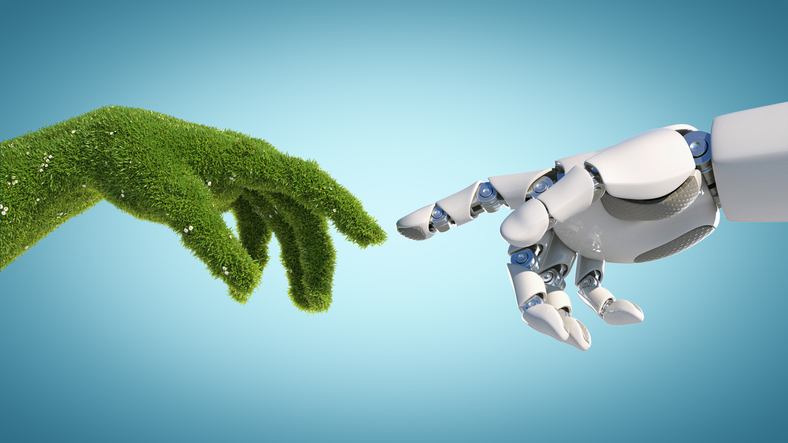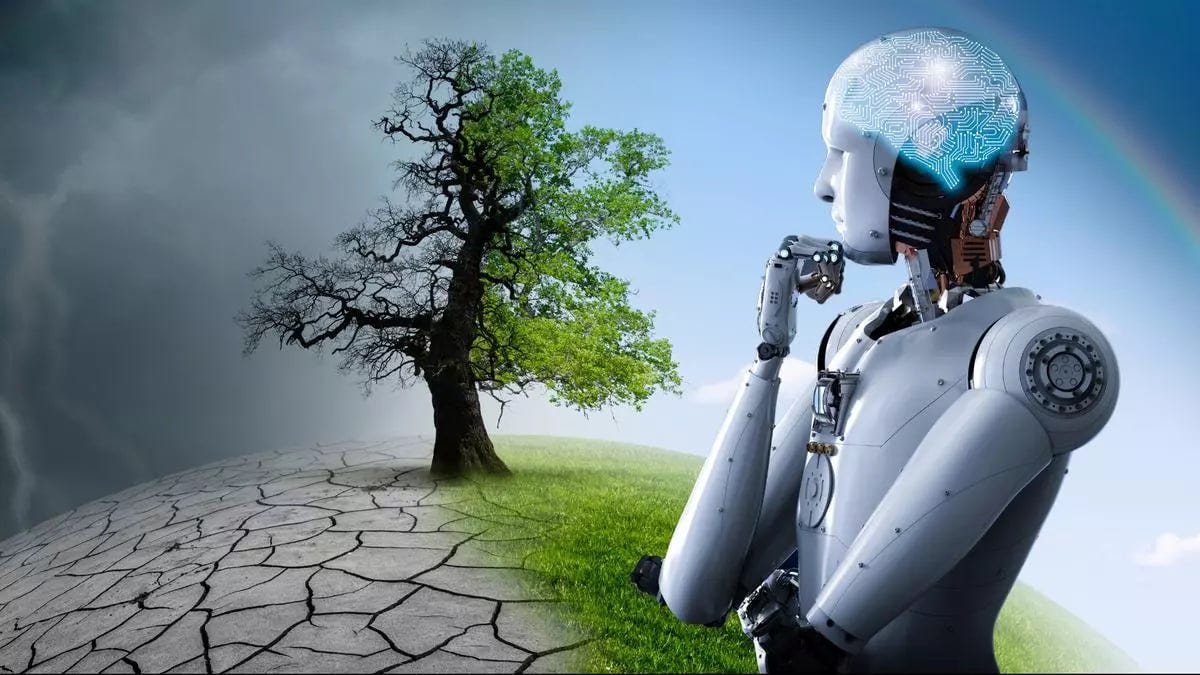The evolution and adoption of artificial intelligence (AI) spans diverse sectors, including healthcare, education and industry, and is happening at a global level. At the same time, AI is beginning to play a significant role in solving one of the most pressing problems of our time – climate change.
According to the United Nations (UN), the use of AI can have a very effective impact on a number of problems, including improving the efficiency of resource management and reducing carbon emissions and conducting research in the field of alternative energy. Artificial intelligence is poised to become a powerful tool in combating climate challenges and helping to create a more sustainable future for our planet.
Key forecasts for the future
According to the World Meteorological Organization (WMO), artificial intelligence holds promise for processing vast amounts of data, which will significantly improve the ability to model and predict climate change. This in turn can help governments create more effective approaches to adapting to climate change and reducing its negative consequences
One example of the use of intelligent systems in this area is a project implemented in the countries of Burundi, Chad and Sudan. This project analyzes historical changes in the environment using AI, which also makes it possible to more accurately predict these changes.
Another example is the MyAnga app, which helps Kenyan herders prepare for periods of drought. It uses data from global weather stations and satellites to provide up-to-date information on weather conditions and climate trends, helping local communities make more informed decisions and adapt to environmental changes.
Reducing the risk of natural disasters
In addition to being able to predict severe weather events, artificial intelligence can also greatly enhance society’s preparation for climate disasters by working to improve the accuracy of weather forecasts and implementing early warning systems.
Such efforts are focused on identifying areas of increased risk and implementing effective response strategies as needed. For example, for areas prone to landslides, the use of such mechanisms provides local authorities with the means to reduce possible threats and ensure the safety of citizens in vulnerable conditions.

Nature and technology abstract concept, robot hand and natural hand covered with grass reaching to each other, tech and nature union, cooperation, 3d rendering
Artificial intelligence also plays a significant role in the innovative Early Warnings for All initiative launched by the UN Secretary-General. This initiative, launched earlier this year, aims to ensure the safety of every person on the planet from hazardous weather and hydrological events.
Level of atmospheric cleanliness in cities
At the moment, there are a variety of applications that provide citizens with access to information about air pollution with high accuracy, down to specific areas and even neighborhoods. This detailed information helps you make quick decisions in everyday life, such as choosing routes with cleaner air or taking steps to improve your health.
Moreover, artificial intelligence helps improve the management of transport infrastructure. Data analysis and optimization of vehicle traffic can reduce the emission of harmful substances and reduce traffic jams, which has a positive effect on air quality in cities. In addition, smart waste management systems help minimize the environmental impact of landfills, promoting cleaner, healthier urban environments.
Artificial intelligence not only improves the quality of life in cities, but also contributes to public health by reducing the negative impact of pollution on residents.
Efficient and environmentally friendly agricultural practices
According to a UN climate change report, agriculture is responsible for about 22 percent of global greenhouse gas emissions.
However, artificial intelligence can change this dynamic. Through smart grids, artificial intelligence can help balance product supply and demand, facilitating the integration of renewable energy into energy systems and reducing dependence on fossil fuels. In addition, AI can optimize agricultural practices for both small farmers and large corporations, reducing losses and reducing environmental impact.

